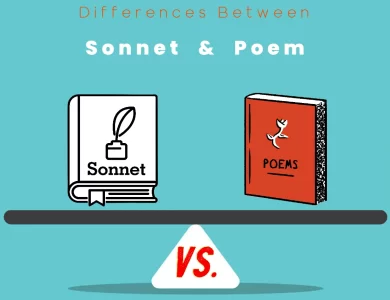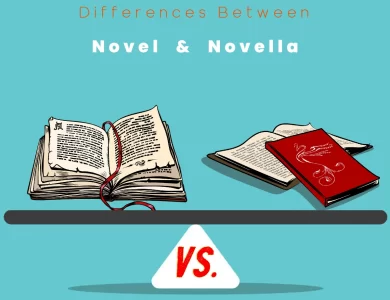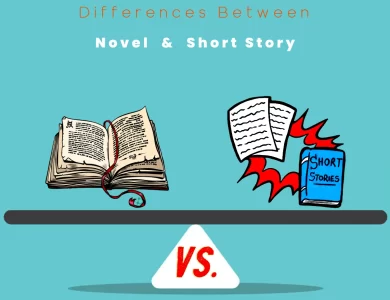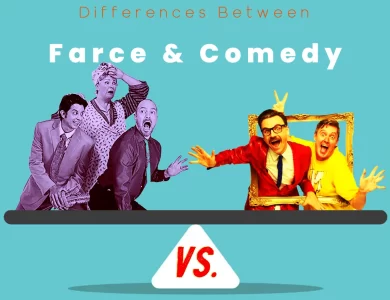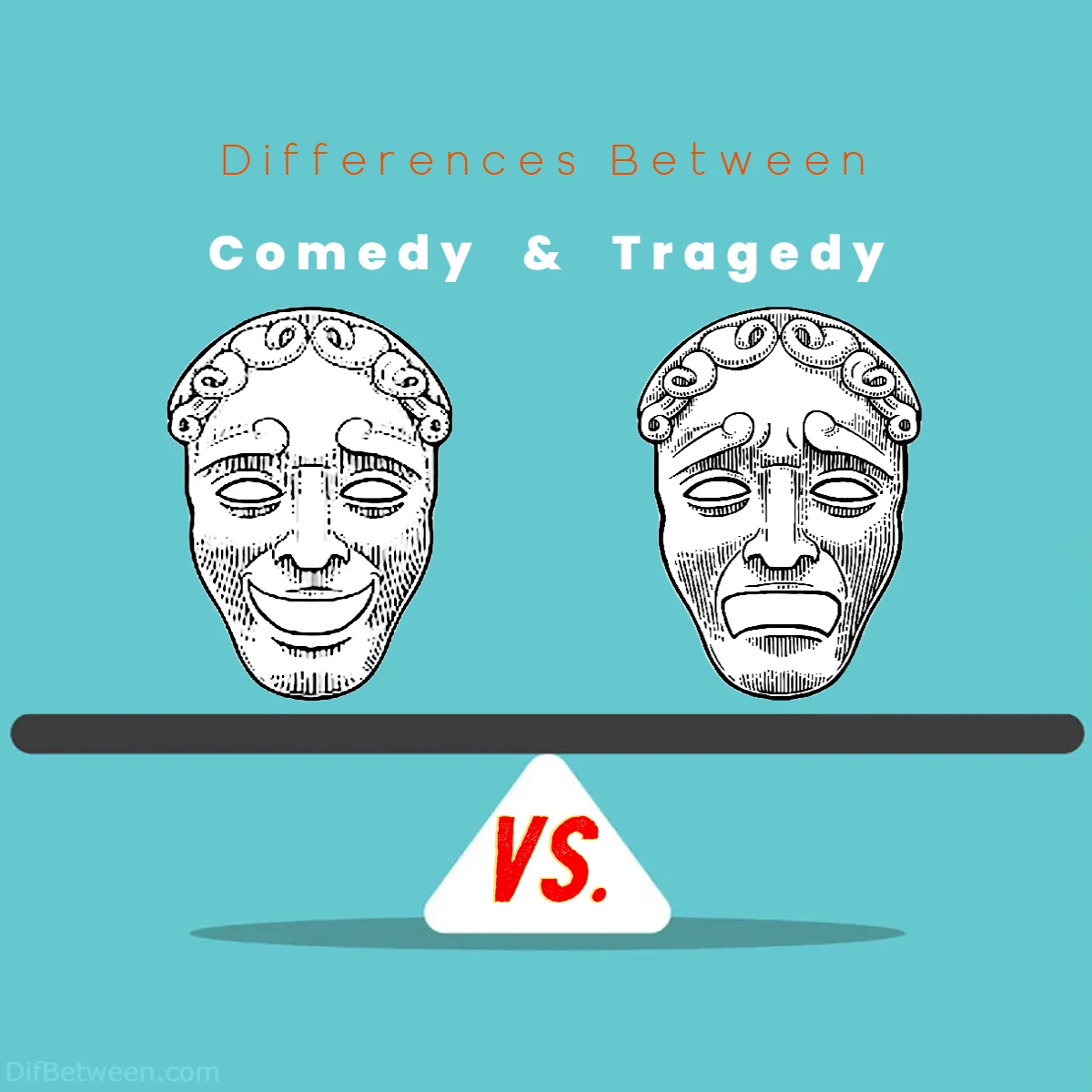
| Aspect | Comedy | Tragedy |
|---|---|---|
| Definition | Light-hearted, humorous, and often absurd. | Serious, somber, and explores profound themes. |
| Themes | Love, friendship, misunderstandings, social commentary, identity, and self-discovery. | Fate, hubris, moral dilemmas, suffering, conflict, and betrayal. |
| Character Traits | Exaggeration, quirkiness, ineptitude, optimism, endearing flaws. | Hubris, moral ambiguity, internal conflict, fatal flaws, suffering. |
| Plot Structure | Introduction of characters, conflict, escalation of comedy, resolution, happy ending. | Introduction of characters, conflict or tragic flaw, rising tension, climax, tragic resolution, catharsis. |
| Emotional Impact | Laughter, joy, relief, optimism, empathy. | Pity, sadness, fear, catharsis, complexity. |
| Examples | “A Midsummer Night’s Dream,” “Friends,” “The Hangover.” | “Macbeth,” “Oedipus Rex,” “Romeo and Juliet.” |
| Societal Impact | Social commentary, stress relief, building connections, challenging stereotypes. | Moral reflection, empathy, cultural significance, artistic expression. |
| Enduring Popularity | Universal appeal, stress relief, social connection, adaptability. | Emotional resonance, philosophical inquiry, timeless themes, artistic challenge. |
Comedy, with its light-hearted and humorous essence, invites you to revel in the joy of laughter and whimsy. It beckons you to indulge in the mirthful side of life, offering an escape from the rigors of daily existence. On the other hand, tragedy, with its somber and thought-provoking themes, takes you on a profound journey through the complexities of the human condition. It challenges your beliefs, tugs at your heartstrings, and leaves you in deep contemplation.
Differences Between Comedy and Tragedy
The main differences between comedy and tragedy lie in their tone, themes, and emotional impact. Comedy is characterized by its light-hearted, humorous, and often absurd tone, aiming to entertain and amuse the audience through laughter and a sense of joy. It typically features themes such as love, friendship, misunderstandings, and happy endings. In contrast, tragedy explores serious and somber themes, delving into profound subjects like fate, hubris, moral dilemmas, and suffering. It evokes emotions such as pity, sadness, and fear, often culminating in a tragic resolution or catharsis. These fundamental distinctions make comedy and tragedy distinct genres, each offering a unique storytelling experience.
Definition of Comedy and Tragedy
Comedy Defined
Comedy is a genre of storytelling characterized by its light-hearted, humorous, and often absurd tone. It aims to entertain and amuse the audience through laughter and a sense of joy. In a comedic narrative, the conflicts and obstacles faced by the characters are typically resolved in a positive and optimistic manner, leading to a happy ending. This resolution often involves the characters overcoming misunderstandings, absurd situations, or societal norms, resulting in a sense of fulfillment and happiness.
Comedic works can encompass various forms, including sitcoms, stand-up comedy, and comedic plays. They often employ techniques such as satire, wordplay, and situational humor to elicit laughter and amusement from the audience. Classic examples of comedy include Shakespeare’s “A Midsummer Night’s Dream,” the TV series “Friends,” and films like “The Hangover.”
Tragedy Defined
Tragedy, on the other hand, is a genre that explores the darker aspects of human existence. It delves into profound themes such as suffering, fate, and the inevitable consequences of human actions. In a tragic narrative, the central characters often face insurmountable challenges and conflicts that ultimately lead to their downfall or suffering. Tragedy seeks to evoke deep emotions, such as sadness, pity, and fear, in the audience.
Tragic works are known for their serious and somber tone, and they frequently explore morally complex situations and the flaws of the protagonists. The outcome in tragedy is typically bleak, with characters often meeting tragic ends, such as death or emotional devastation. Classic examples of tragedy include Shakespeare’s “Macbeth,” Sophocles’ “Oedipus Rex,” and films like “Romeo and Juliet.”
Themes and Subject Matter
Comedy Themes
Comedic narratives often revolve around themes that celebrate the lighter side of life. These themes can include:
- Love and Romance: Comedies frequently explore the ups and downs of romantic relationships, often culminating in the union of the main characters.
- Friendship: The bonds of friendship and camaraderie are central to many comedic stories, emphasizing the importance of social connections.
- Misunderstandings: Comedies thrive on misunderstandings and miscommunications, leading to humorous situations that are eventually resolved.
- Social Commentary: Some comedies use humor to critique societal norms and conventions, offering a satirical perspective on human behavior.
- Identity and Self-Discovery: Characters in comedies often undergo personal growth and self-discovery, leading to positive transformations.
Tragedy Themes
In contrast, tragic narratives delve into darker and more somber themes, including:
- Fate and Destiny: Tragedies frequently explore the idea that certain events are predetermined and cannot be avoided, leading to the downfall of the characters.
- Hubris and Pride: Tragic protagonists often exhibit excessive pride or arrogance, which ultimately leads to their undoing.
- Moral Dilemmas: Tragedies often present characters with complex moral choices, forcing them to grapple with the consequences of their decisions.
- Suffering and Loss: The experience of profound suffering, loss, and emotional turmoil is a recurring theme in tragic works.
- Conflict and Betrayal: Tragic stories are rife with conflicts and betrayals, highlighting the darker aspects of human relationships.
The stark contrast in themes between comedy and tragedy sets the stage for the emotional rollercoaster that audiences experience when engaging with these genres.
Character Development
Comedy Character Traits
Comedic characters are typically portrayed with certain distinctive traits and characteristics, which contribute to the overall humor and lightheartedness of the narrative. Some common traits of comedic characters include:
- Exaggeration: Comedic characters often exhibit exaggerated behaviors, emotions, or physical traits, which can lead to comedic situations.
- Quirkiness: Quirky and eccentric traits are common among comedic characters, adding to their unique and memorable nature.
- Ineptitude: Many comedic characters are portrayed as inept or clumsy, leading to humorous mishaps and accidents.
- Optimism: Comedic protagonists tend to maintain an optimistic outlook, even in the face of adversity, which contributes to the overall positive tone of the story.
- Endearing Flaws: Comedic characters often possess endearing flaws that make them relatable and likable to the audience.
Tragedy Character Traits
In tragic narratives, character traits take on a different dimension, emphasizing the flaws and complexities of the individuals involved. Tragic characters often exhibit traits such as:
- Hubris: Tragic protagonists are frequently marked by excessive pride and overconfidence, leading to their tragic downfall.
- Moral Ambiguity: Tragic characters may grapple with moral dilemmas and conflicting values, making them morally complex and multi-dimensional.
- Internal Conflict: Tragic characters often experience inner turmoil and conflict, struggling with their own flaws and decisions.
- Fatal Flaws: These characters possess a fatal flaw or hamartia, which ultimately contributes to their tragic fate.
- Suffering: Tragic characters endure significant emotional or physical suffering throughout the narrative, eliciting empathy from the audience.
The stark contrast in character traits between comedy and tragedy plays a crucial role in shaping the overall tone and emotional impact of the story.
Plot Structure
Comedy Plot Structure
Comedic narratives typically follow a structured pattern that leads to a satisfying and humorous resolution. The basic elements of a comedic plot structure include:
- Introduction of Characters: The story introduces the main characters and their initial circumstances.
- Conflict or Obstacle: A conflict or obstacle arises, often driven by misunderstandings or absurd situations.
- Escalation of Comedy: The comedic elements intensify as the characters attempt to resolve the conflict, leading to humorous complications.
- Resolution: The conflict is resolved in a way that brings happiness, reconciliation, or a positive change in the characters’ lives.
- Happy Ending: Comedic narratives typically conclude with a happy and joyous ending, leaving the audience in high spirits.
Tragedy Plot Structure
Tragic narratives, on the other hand, follow a different plot structure that leads to a somber and often devastating conclusion. The key elements of a tragic plot structure include:
- Introduction of Characters: Tragic stories introduce the central characters and their initial circumstances.
- Conflict or Tragic Flaw: A central conflict or tragic flaw is revealed, setting the stage for the character’s downfall.
- Rising Tension: The tension and stakes escalate as the character grapples with the conflict or flaw.
- Climax: The narrative reaches its emotional peak, often involving a moment of reckoning or tragic decision.
- Tragic Resolution: The story concludes with a tragic outcome, such as the death of the protagonist or their emotional devastation.
- Catharsis: Tragedies aim to provide catharsis for the audience, eliciting a sense of pity and fear that leads to emotional purification and reflection.
The distinct plot structures of comedy and tragedy shape the audience’s expectations and emotional engagement with the story.
Emotional Impact
Comedy’s Emotional Impact
Comedic narratives are designed to elicit a range of positive emotions from the audience, including:
- Laughter: The primary goal of comedy is to make the audience laugh, providing moments of humor and amusement throughout the narrative.
- Joy: Comedic stories often lead to feelings of joy and happiness, especially when characters overcome obstacles and find love or success.
- Relief: Comedy can provide a sense of relief from the stresses of everyday life, offering an escape into a world of humor and absurdity.
- Optimism: Comedic narratives leave the audience with an optimistic outlook, reinforcing the idea that problems can be solved, and happiness can be achieved.
- Empathy: Audiences often develop empathy for the endearing and relatable comedic characters, forging a strong emotional connection.
Tragedy’s Emotional Impact
In contrast, tragic narratives aim to evoke deep and somber emotions in the audience, including:
- Pity: Tragic characters’ suffering and misfortunes lead to feelings of pity and sympathy among the audience.
- Sadness: Tragedies often elicit profound sadness, especially when characters meet tragic ends or face insurmountable challenges.
- Fear: The themes of fate and downfall in tragedies can instill a sense of fear and foreboding in the audience.
- Catharsis: Tragic narratives provide catharsis, allowing the audience to experience emotional purging and reflection.
- Complexity: Tragic stories challenge the audience’s moral and emotional sensibilities, leading to a deeper engagement with the narrative.
The emotional impact of comedy and tragedy diverges significantly, with comedy aiming to uplift and amuse, while tragedy seeks to engage and provoke introspection.
Examples of Comedy and Tragedy
Classic Comedy Examples
- “A Midsummer Night’s Dream” by William Shakespeare: This classic play is a prime example of comedic storytelling, featuring a tangled web of love, mistaken identities, and magical interventions. It culminates in multiple weddings and a sense of joyful resolution.
- “Friends” (TV Series): “Friends” is a beloved sitcom that revolves around the lives of a group of friends in New York City. It explores themes of friendship, love, and humorous mishaps, consistently delivering laughter and happy endings.
- “The Hangover” (Film): This comedy film follows a group of friends who embark on a wild bachelor party in Las Vegas, only to wake up the next morning with no memory of the previous night’s events. The film’s outrageous situations and comedic twists lead to a hilarious and satisfying resolution.
Classic Tragedy Examples
- “Macbeth” by William Shakespeare: “Macbeth” is a classic tragedy that tells the story of a nobleman’s descent into madness and tyranny driven by his ambition. The play culminates in a series of tragic deaths, including that of the titular character.
- “Oedipus Rex” by Sophocles: This ancient Greek tragedy explores the concept of fate and self-discovery as Oedipus, unknowingly, fulfills a prophecy that leads to his own downfall. The play ends in a tragic revelation and Oedipus’s self-inflicted punishment.
- “Romeo and Juliet” (Film): Shakespeare’s timeless tragedy of two young lovers from feuding families, Romeo and Juliet, has been adapted into numerous films. The story concludes with the tragic deaths of the titular characters, highlighting the destructive power of love and hate.
The Societal Impact of Comedy and Tragedy
Comedy’s Societal Impact
Comedy has a profound impact on society, often serving as a mirror that reflects and critiques various aspects of culture and human behavior. Some of the ways comedy influences society include:
- Social Commentary: Many comedians use humor to comment on societal issues, challenging norms, and shedding light on injustices. Through satire and parody, comedy can expose the absurdities of everyday life.
- Stress Relief: Laughter is known to reduce stress and increase feelings of well-being. Comedy provides an essential form of escapism, offering people a break from their daily struggles and worries.
- Building Connections: Comedy can unite people through shared laughter. Whether in a comedy club or watching a sitcom with friends, humor brings individuals together, fostering a sense of community.
- Challenging Stereotypes: Comedy has the power to challenge stereotypes and promote inclusivity. Comedians often use their platforms to address issues of race, gender, and identity, fostering important conversations.
Tragedy’s Societal Impact
Tragedy, while often emotionally taxing, also has a significant impact on society, prompting reflection and discussion on fundamental human themes. The societal impact of tragedy includes:
- Moral Reflection: Tragic narratives compel audiences to examine their own beliefs, actions, and moral compass. They encourage introspection and discussions on complex ethical dilemmas.
- Empathy and Compassion: Tragedies evoke deep empathy for the suffering of others. Witnessing characters endure hardships in tragic stories can foster compassion and a sense of solidarity.
- Cultural Significance: Many classic tragedies hold cultural significance, shaping the way societies perceive themselves and their history. These stories often serve as cautionary tales or reflections of societal values.
- Artistic Expression: Tragedy challenges artists to explore the depths of human emotion and storytelling. It has inspired countless works of literature, theater, and film that continue to resonate with audiences.
The Enduring Popularity of Comedy and Tragedy
Comedy’s Enduring Popularity
Comedy has maintained its popularity across cultures and generations for several reasons:
- Universal Appeal: Laughter is a universal language, and comedy’s ability to evoke joy and amusement transcends cultural and linguistic boundaries.
- Stress Relief: In an increasingly fast-paced and stressful world, people turn to comedy for relief and relaxation. It offers a reprieve from the pressures of daily life.
- Social Connection: Comedy is often enjoyed in social settings, whether through group laughter at a comedy club or sharing funny videos with friends and family. It strengthens social bonds.
- Adaptability: Comedy evolves with the times, incorporating current events, technologies, and cultural references. This adaptability keeps it relevant and relatable.
Tragedy’s Enduring Popularity
Tragedy’s enduring popularity can be attributed to its profound exploration of the human experience:
- Emotional Resonance: Tragic narratives tap into deep emotions and provide catharsis, allowing audiences to connect with the characters on a profound level.
- Philosophical Inquiry: Tragedy raises philosophical questions about the nature of fate, free will, and the human condition. It encourages contemplation and intellectual engagement.
- Timeless Themes: The themes explored in tragedy—such as love, ambition, and morality—are timeless and continue to resonate with audiences across eras.
- Artistic Challenge: Tragedy challenges artists and creators to push the boundaries of storytelling and emotional expression, leading to enduring works of art.
Comedy or Tragedy: Which One is Right Choose for You?
Choosing between comedy and tragedy largely depends on your personal preferences, mood, and what you seek from a story or entertainment experience. Here are some considerations to help you decide which genre is right for you at a given moment:
Choose Comedy If:
- You Need a Laugh: If you’re feeling stressed, down, or simply in need of a good laugh, comedy is the perfect choice. It can instantly uplift your spirits and provide much-needed stress relief.
- Light-hearted Entertainment: Comedy is ideal for light-hearted and entertaining experiences. It often offers a break from serious or heavy themes, allowing you to relax and enjoy the moment.
- Positive Endings: If you prefer stories with happy and optimistic endings, where characters overcome obstacles and find joy, comedy is the way to go. It leaves you with a sense of fulfillment and happiness.
- Social Bonding: Comedy is often enjoyed in social settings, making it a great choice for gatherings with friends and family. Shared laughter can strengthen social bonds and create memorable moments.
- Escape from Reality: Comedy provides a form of escapism, transporting you into a world of humor and absurdity. It offers a break from the challenges of daily life.
Choose Tragedy If:
- Emotional Depth: If you’re in the mood for a story that delves into deep emotions, challenges your perspectives, and prompts introspection, tragedy is the way to go. It can be a profoundly moving experience.
- Philosophical Reflection: Tragedy often raises philosophical questions about life, morality, and the human condition. If you enjoy intellectual engagement and philosophical inquiry, you’ll find it in tragic narratives.
- Catharsis: Tragic stories provide catharsis, allowing you to release pent-up emotions and engage in emotional purification. They can be emotionally cleansing and thought-provoking.
- Artistic Exploration: Tragedy challenges artists to push the boundaries of storytelling and emotional expression. If you appreciate artistic depth and complexity, tragedy offers a rich canvas.
- Timeless Themes: Tragic themes such as love, ambition, and morality are timeless and continue to resonate with audiences across generations. If you seek narratives with enduring significance, tragedy is a strong choice.
Ultimately, the choice between comedy and tragedy depends on your current emotional state and what you’re seeking in your entertainment or reading experience. Both genres have their own unique merits and can provide valuable and enjoyable storytelling. It’s also worth noting that there are narratives that blend elements of both genres, offering a balance of humor and depth for those who appreciate both aspects. So, whether you’re in the mood for laughter or introspection, there’s a genre waiting to provide the perfect storytelling experience for you.
FAQs
The main difference lies in their tone and themes. Comedy is light-hearted, humorous, and typically has a happy ending, while tragedy is serious, somber, and often ends in suffering or a tragic resolution.
Yes, some stories blend elements of both genres, creating a genre known as “dramedy.” These narratives offer a balance of humor and depth, exploring a range of emotions.
Yes, comedic characters often exhibit traits like exaggeration, quirkiness, and optimism, while tragic characters may have flaws like hubris and moral ambiguity.
Comedy evokes emotions like laughter, joy, and relief, while tragedy elicits feelings of pity, sadness, fear, and catharsis.
Yes, classic examples of comedy include Shakespeare’s “A Midsummer Night’s Dream” and the TV series “Friends,” while classic tragedies include “Macbeth” by Shakespeare and Sophocles’ “Oedipus Rex.”
Comedy often provides stress relief, social bonding, and a platform for social commentary, while tragedy encourages moral reflection, empathy, and cultural significance.
You can certainly enjoy both genres! Your preference may depend on your mood and what you seek in a storytelling experience.
Comedy adapts to current events and cultural references, while tragedy explores timeless themes and continues to resonate with audiences across generations.
Yes, several films and TV shows, such as “The Pursuit of Happyness” and “Breaking Bad,” incorporate elements of both genres to create a nuanced storytelling experience.
Comedy and tragedy offer valuable insights into the human experience, from the joy of laughter to the depths of introspection, helping you better understand the complexity of life and emotions.
Read More:
Contents

